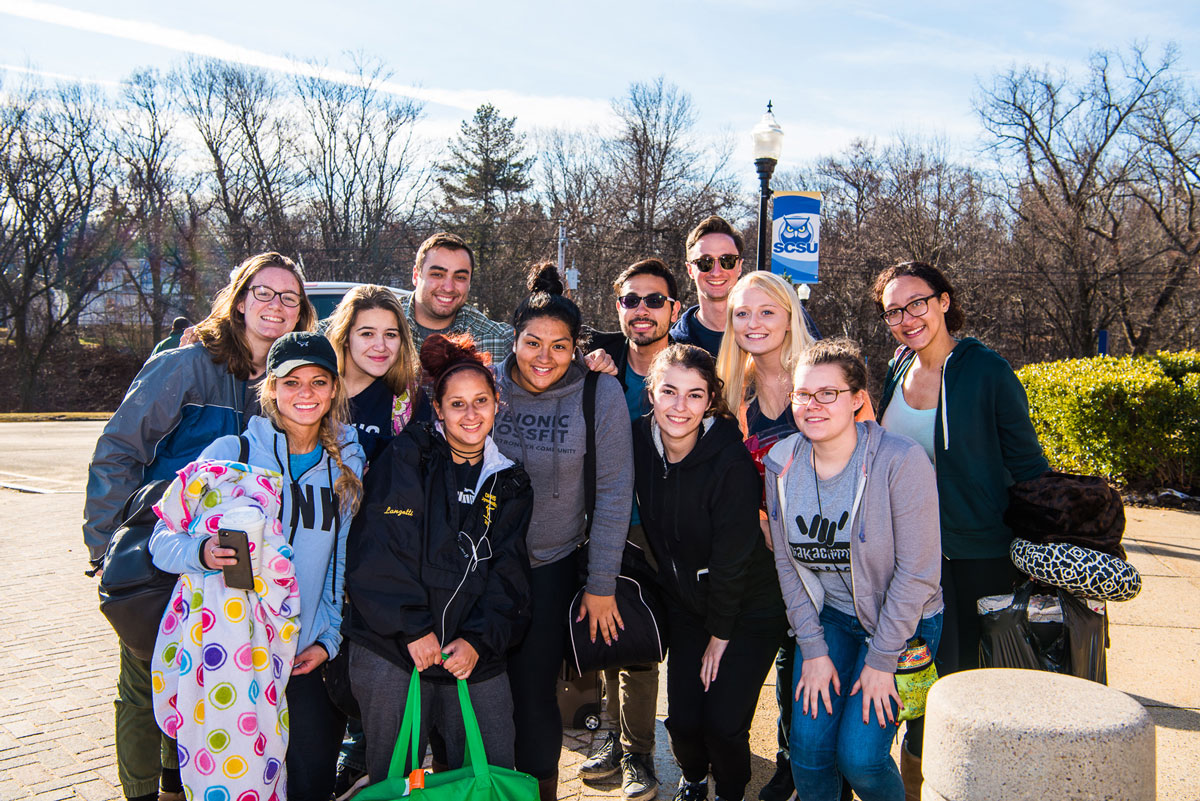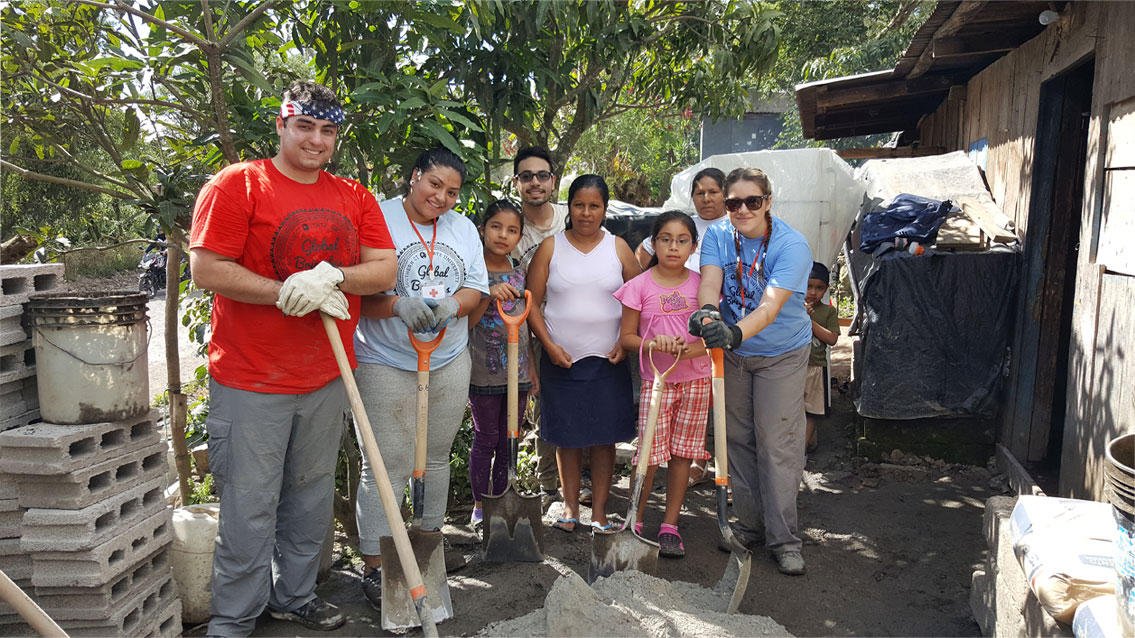Winter break may feel like just a distant memory for most students by now, but for one group of Southern students, this year’s break created memories that will last a lifetime.
Members of a university club called Global Brigades traveled to Nicaragua from January 5-13 to work on a project to help improve water access and sanitation for a remote village. The students did all of the planning and fundraising for the trip and did not receive course credit for their work; their efforts were all volunteer. “I think this level of volunteerism abroad is a first for SCSU,” says Michael Schindel, assistant director of the Office of International Education and the club’s adviser.
The Southern group is a chapter of the national nonprofit organization Global Brigades, the largest student-led international community service group. Global Brigades operates in four countries — Ghana, Honduras, Nicaragua, and Panama — and provides ongoing support within the countries. Essentially, different college chapters fundraise to pay for airfare, accommodation, and funds to support the projects in these countries for periods of one week to 10 days, with the option of going for longer. One university chapter joins a project after another leaves, so that the projects can remain continuous. The projects focus on different community needs relating to public health, medical and dental needs, engineering, microfinance, water access, and human rights.
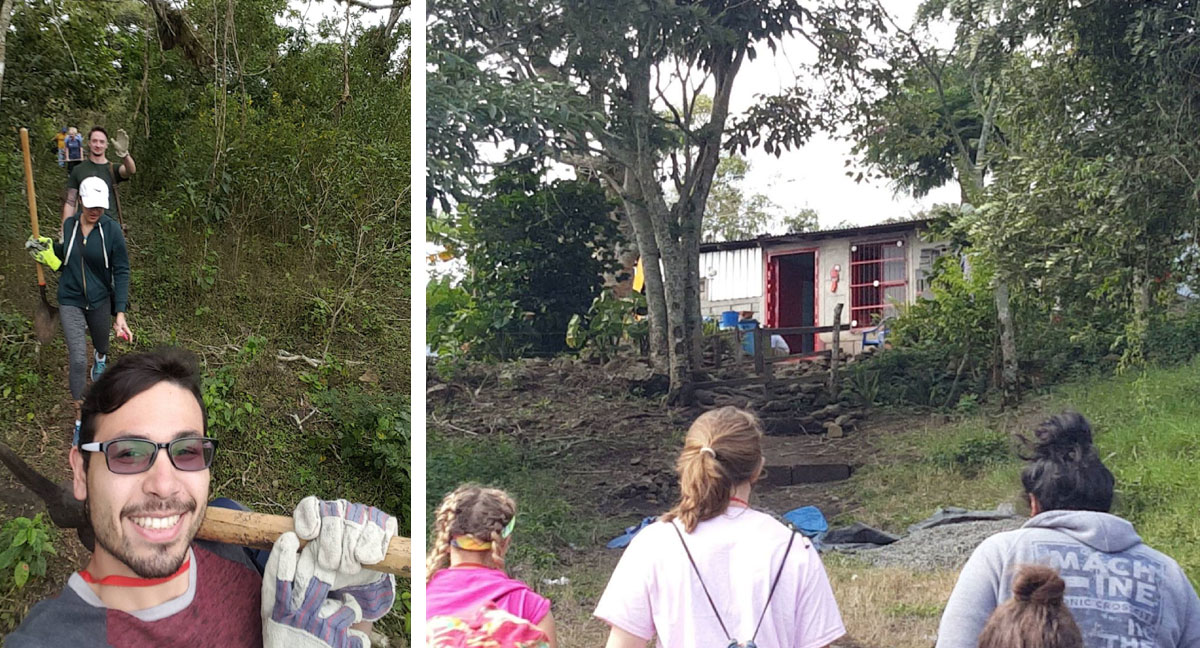
The Southern chapter has been on campus for two years, and this was the group’s first time conducting a “brigade” abroad. Students Sleman Hussein and Amanda Saslow and a core group of other students started the chapter; they drafted the constitution, made all the connections with the national organization, and recruited members. For the trip to Nicaragua, the executive board oversaw all of the travel arrangements, as well as fundraising, planning the “Charla” (a community public health lesson that was presented to a group of children, entirely in Spanish), and designing the t-shirts.
Hussain praises the dedication of the students who joined Global Brigades. “We went through many hurdles and obstacles to build the club,” he says. “We have 14 devoted people who spent the last couple years fundraising money, not for a vacation, or to donate to a church or soup kitchen. No, we have 14 devoted people who took time out of their busy college schedules to go to a third world country and break their backs for a week.”
Saslow agrees, adding, “I am so beyond proud of not only the 14 individuals joining us on the brigade but the entire Global Brigades family that we’ve established at Southern. It has been incredible seeing students support each other and stand by each other in an environment where it’s very easy to feel alone. Working with these 14 people has been a life-changing experience and I’m definitely walking out of here with a heck of a lot more than just a degree.”
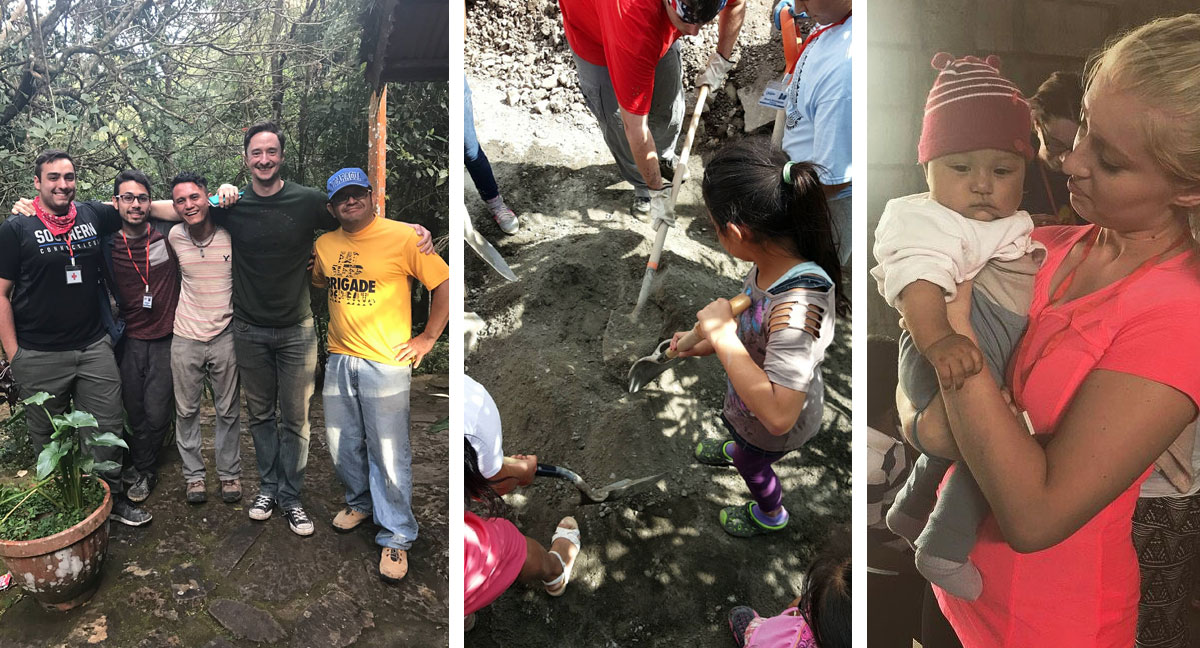
Student Emily Gersz, a member of the club who went to Nicaragua, says she found the experience “life-changing.” She admits the trip “was a ton of hard work . . . but I’d do it 100 times over to see the gratitude in the eyes of the families we helped.”
According to Paul Nicholas, a member of the club’s e-board, the students did manual labor each day for five days, waking up at 6 a.m., taking a two-hour bus ride to Jinotega, the community where they worked, and then working side-by-side with the families they were helping. Together, they built concrete floors, sanitary stations, and septic tanks for homes that were typically made out of cinderblocks and wood branches, with dirt floors.
“The families were so welcoming and humble; letting us (complete strangers) work in and outside their homes,” Nicholas says. He explains that the group worked on building sanitary stations because many families don’t have toilets or showers at all. Because the women have back problems from always bending down to scrub clothes when doing laundry, the wash stations in the sanitary stations were raised to a higher level.
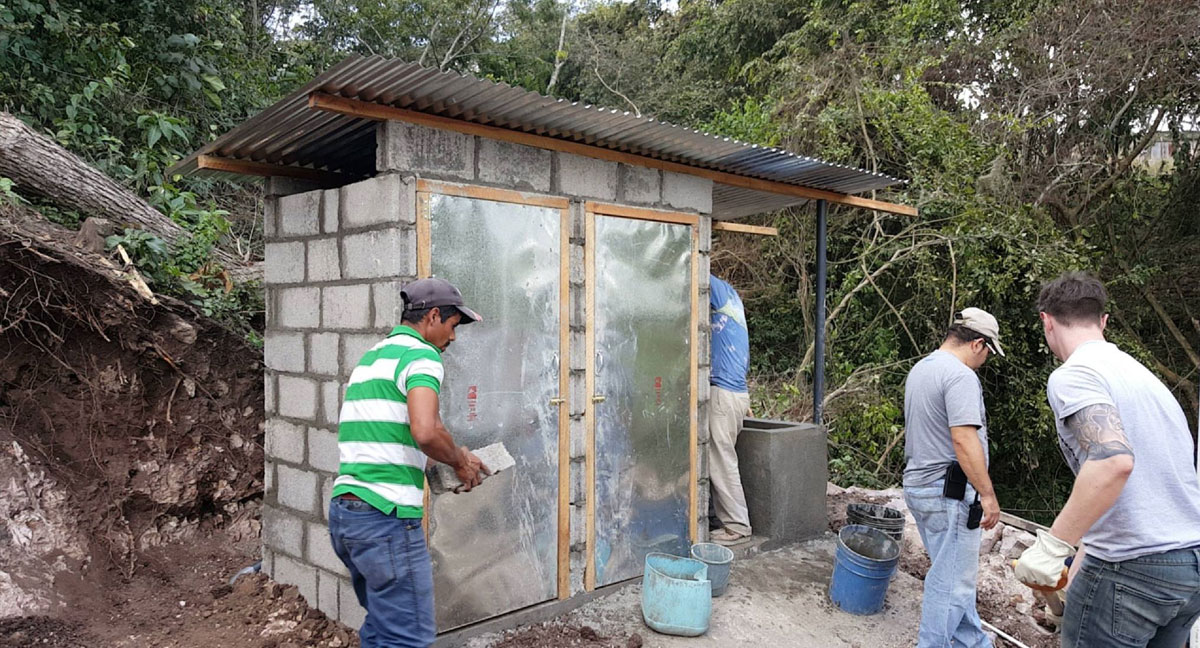
Nicholas says the conditions some of the families live in helped him realize that “there are so many more important things to worry about in this world . . . as opposed to all the small things we worry about here in the U.S.” He learned that the men in Jinotega make about two dollars a day, while the women have to walk miles carrying clean water from a clean source. Before Global Brigades became involved in helping Jinotega, the village’s water had a high concentration of fecal matter, causing parasites and disease. The solution Global Brigades is providing is to build an irrigation system directly connecting clean water from the mountains to many communities.
Part of the Global Brigades model is to have the community receiving assistance also participate in the work and provide some funding, so that the community is helping itself and taking ownership of the improvement projects.
Student Annie Kaczmarczyk’s outlook on life was transformed by her experience on the trip. “My perspective on what I take for granted has been drastically changed after seeing people live without basic life necessities,” she says. “What impacted me most on the trip is truly how much compassion and joy the people of Nicaragua have, even in such a dire state.”
Schindel says, “I am so proud of and impressed by this group of students. They took all of this on, set a goal, and worked all year towards achieving it.” Schindel applauds the students for volunteering their winter breaks “to spend it digging trenches for water pipes, laying concrete foundations in people’s homes, building sanitation stations with access to potable water and waste removal, and teaching children about proper hygiene.”
See an album of students’ photos from the Global Brigades trip.
